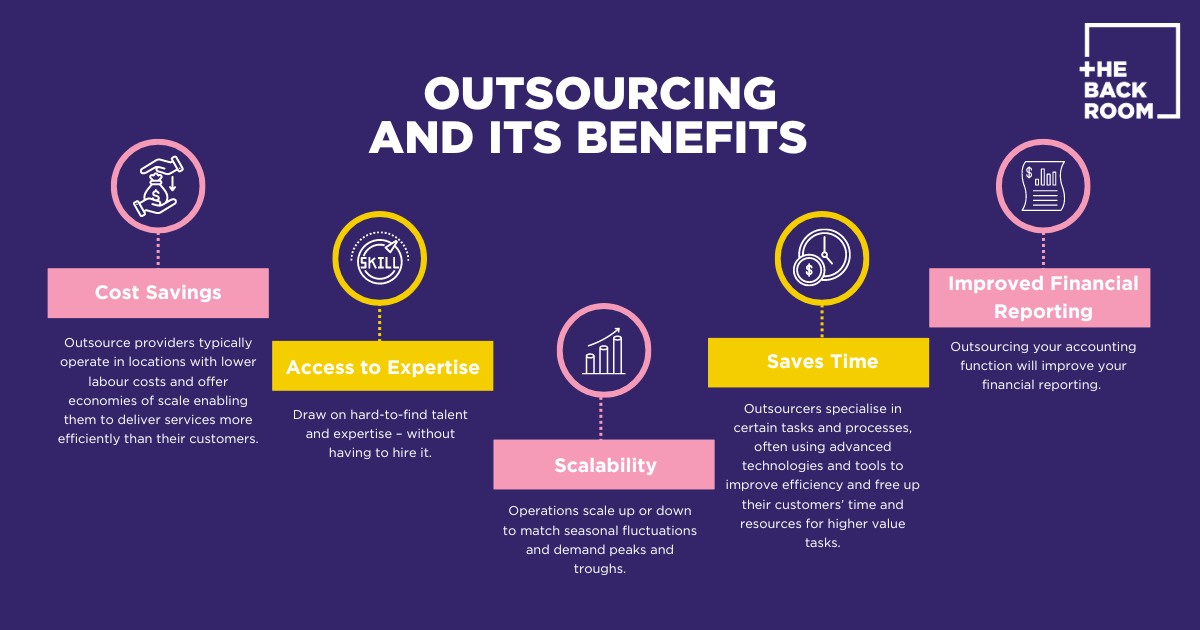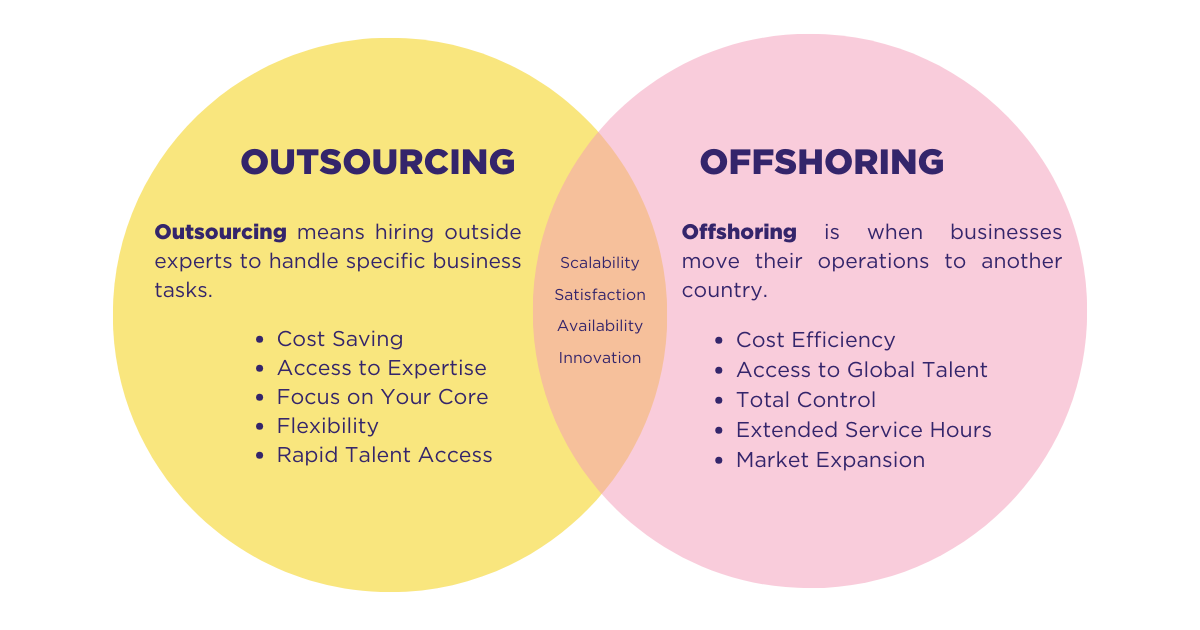Offshore vs Onshore Teams: Which Is Right for Your Business?

A caption that describes the image.
When it comes to building your team, every decision you make has the potential to impact your bottom line, growth trajectory, and day-to-day operations. One of the most debated choices for businesses today is whether to go offshore or stick with onshore teams. Both come with distinct advantages, but the right answer depends on your unique needs, goals, and challenges.
If you're a business owner or SME navigating this complex decision, this blog will break down the key differences between offshore and onshore teams, helping you cut through the noise and make an informed choice.
What Are Offshore and Onshore Teams?
- Offshore Teams refer to employees who are located in a different country, often in regions where labour costs are lower. These teams have become increasingly common in industries like IT, customer service, and manufacturing. Popular offshore destinations include countries like India, the Philippines, and Eastern Europe.
- Onshore Teams, on the other hand, are based in the same country as your business. They operate within the same legal, cultural, and time-zone frameworks as your organisation, offering close alignment with your business environment.
Now that we’re clear on definitions, let's explore the pros and cons of each option.
Offshore Teams: Breaking Down the Benefits and Challenges

Pros of Offshore Teams:
1. Cost Savings
One of the biggest draws of offshore teams is cost. Labour in offshore markets is typically more affordable, allowing you to stretch your budget further. This is a major appeal for businesses looking to scale quickly without breaking the bank.
2. Larger Talent Pool
Offshore hiring opens up access to a global talent pool. You’re no longer limited to local candidates, which can be particularly advantageous in industries where specialised skills are in high demand.
3. Scability
Need to scale your team fast? Offshore teams are typically more flexible when it comes to rapid hiring and expansion, enabling your business to adapt quickly to changing workloads.
Challenges of Offshore Teams:
1. Communication Barriers
Different time zones, varying levels of English fluency, and cultural nuances can create friction. Clear and frequent communication, along with structured workflows, is essential for overcoming these obstacles.
2. Quality Control
Without direct oversight, maintaining consistent quality of work can be a challenge, especially for highly technical or creative roles.
3. Legal and Compliance Risks
Different countries have different employment laws, and it’s crucial to remain compliant with local regulations when managing offshore teams.
Onshore Teams: Pros, Challenges, and What to Expect

Pros of Onshore Teams:
1. Closer CollaborationWorking within the same time zone and cultural context allows for seamless communication and alignment. Onshore teams are often better equipped to understand the local market and customer base.
2. Higher ControlWith an onshore team, you generally have more hands-on oversight. This can lead to faster problem-solving and a deeper understanding of your company’s culture and goals.
3. Easier Legal ComplianceOperating locally means your team is already familiar with and adheres to the same regulatory frameworks, reducing the risk of hidden legal surprises.
Challenges of Onshore Teams:
1. Higher CostsOnshore talent often comes at a premium due to higher wages and benefits costs. This can be a significant barrier for SMEs with limited resources.
2. Smaller Talent PoolDepending on your location, it may be harder to find niche or specialised skills within your local market.
3. Slower ScalabilityHiring locally can take longer and may involve increased competition for skilled workers.
Key Considerations to Help You Decide

Now that we’ve weighed the pros and cons, here are four factors to help you decide whether to go offshore or onshore:
1. Nature of the Job- Tasks requiring hands-on oversight, deep cultural understanding, or customer interaction often make more sense for onshore teams.
- Process-driven or repetitive work without a heavy need for contextual understanding may be better suited for offshore teams.
- Are budget constraints your primary concern? Offshore teams may provide the cost-effective solution you’re looking for.
- If maintaining a high degree of quality is critical, onshore teams may offer better peace of mind due to their proximity and shared cultural frameworks.
- For rapid expansion, an offshore model likely provides you with greater flexibility in hiring.
The Hybrid Approach: Best of Both Worlds
Here’s the good news—you don’t have to choose one over the other! Many businesses now adopt a hybrid model, leveraging the strengths of both onshore and offshore teams:
- Offshore teams can handle repetitive, operational tasks like data entry, customer support, or software engineering.
- Onshore teams can focus on strategic, customer-facing, or creative roles where cultural familiarity and speed of turnaround matter.
This approach allows you to optimise costs without sacrificing quality or efficiency.
Why Choosing the Right Fit Matters
Whether you’re expanding for growth or stabilising to meet demands, the decision between offshore and onshore staffing isn’t one to rush. Each option has unique advantages and challenges—and getting it wrong can set your business back. By evaluating your specific needs, you’ll position your business to thrive, no matter which route you take.
Still unsure about what’s right for your business? Book a consultation with our experts today and take the next step toward smarter, more inclusive hiring decisions.



